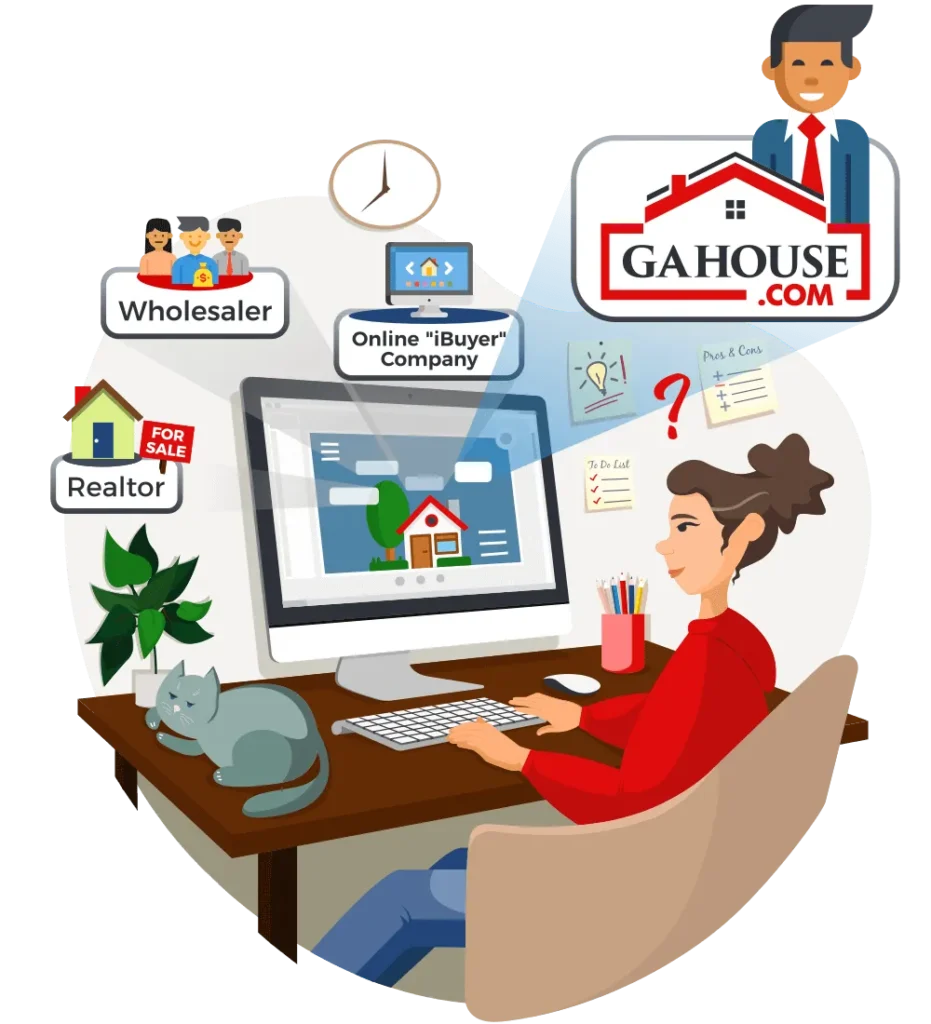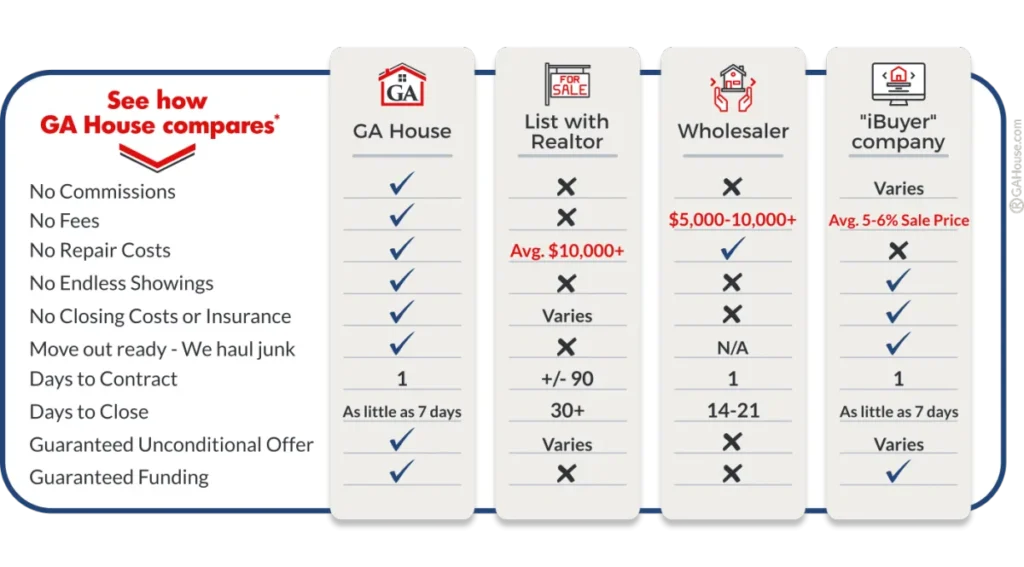
Selling your home is one of the biggest decisions you can make. It’s important to be well-informed before making up your mind, even in a Seller’s Market.
While you might be able to get a higher listing price for your property with a traditional sale, in the end you may not get the money to make it worth the time, cost, risk, and stress it takes to put it on the market.
There are 4 main ways to sell, so weigh the pros & cons of all your options, and see how it all adds up!
SKIP AHEAD

Considered the “traditional” way of selling a house, this is where you enlist the help of a real estate agency to put the home up for sale. It generally requires the home owner to make repairs & renovations so the house is “market-ready” & to maximize profit.* The agent will help price & attract buyers, and handles all negotiations & contract work for you.
Seller can also expect to pay for realtor commissions & fees , sometimes closing costs, and sometimes other costs that the buyer may request like extra upgrades (these vary according to contract negotiations).
Alternatively, one can opt to do “For Sale by Owner” which involves pricing, preparing & marketing the home for sale on their own. It’s quite a bit more work for the homeowner, but allows for greater profit since they don’t need to pay realtor fees.
These are the guys with the “We Buy Houses!” sign on the side of the road or on lampposts.
The way they work is they’ll make a quick offer for your house, however they won’t (and can’t) pay for it themselves; instead they get your house under contract and seek end-buyer investors with the cash (like GA House) to buy the home, and take a fee of around $5,000-$10,000+ for essentially passing it onto someone else.
Often your house will show up on house lists being peddled to investors, searching for the highest bid they can get. However, if the house goes for more than the wholesaler expected, they pocket the extra cash – the profit is not passed on to the homeowner.
The main offer of online “iBuyer” companies* is to give you an instant cash offer (based mainly on info the seller provides, AI data, and an in-person walkthrough) so you don’t need to list, and they’ll let you purchase & move into a new home before yours sells.
They are notorious for giving a high initial VALUE ESTIMATE that seems “too good to refuse”, but the OFFER will be much less after they deduct fees & estimated repair costs, once an inspector has evaluated the home.
The company renovates the home before reselling, and makes its profit from the house sale plus ~6% service & convenience fees.
GA House is an “end buyer” investor with cash in-hand ready to purchase your house. We deal only in cash (never borrowed money) which is why we can process transactions and issue payments to clients quickly and assuredly.
Our no-hassle cash offers are based on detailed assessment of the property. In-person walkthrough of the house is optional and only needed to check to various prior renovations or current repair needs.
We renovate properties ourselves & resell for profit, without any service or convenience fees. This also means no middlemen and top-dollar for your house.
When you do business with us, you interact with real people who care. Communication, trust & integrity are our most important values.
